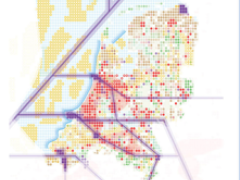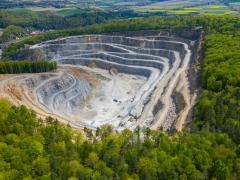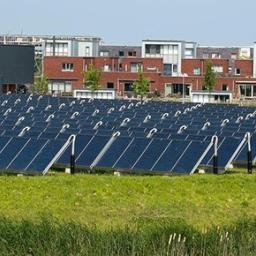Greening the recovery to make it last
The WAVES partnership supports countries with implementing Natural Capital Accounting (NCA). At the request of the WAVES partnership, PBL has evaluated how NCA can support a ‘green’ recovery from the COVID-19 pandemic. The report was prepared as input for the 5th Policy Forum on Natural Capital Accounting for Better Decision Making of September 2021. The Forum is co-organized by the World Bank’s Global Program on Sustainability (GPS), the United Nations Statistics Division (UNSD), and the Government of the Netherlands.
The COVID-19 pandemic has greatly disrupted economies, societies, and livelihoods around the globe. With the pandemic moving into a new phase, nations are shifting their attention from containing the virus and mitigating associated socio-economic impacts to recovery stimulus, to restore employment and boost economic growth. There is increasing recognition that these recovery efforts should also be green, inclusive, and resilient, in order to tackle long-standing problems and for future well-being; this is also called a ‘green’ recovery. The report shows how NCA can aid this process.
Linking recovery to human and environmental challenges
In many countries, the proposed investments and policies that have a negative environmental impact outweigh those that enhance sustainability, while debt constraints have restricted spending in many emerging markets and developing economies. Only a small group of wealthy countries have announced recovery stimulus packages with significant shares of ‘green’ measures, but these focus mostly on low-carbon development and pay little attention to natural capital on which the economy and human well-being critically depend. The report shows that investing in natural capital is part of green recovery. It not only provides employment in the short term and can boost economic growth, but can also deliver social benefits (e.g. improving health and food security), improve the environment (e.g. enhancing biodiversity and carbon sequestration), reduce physical risks (e.g. flooding and storm-related damage) and help prevent future pandemics.
NCA can already support a green recovery today
Many countries have already demonstrated that NCA can support policies related to sustainable development that are closely aligned with the key aspects of a green recovery (e.g. climate change adaptation and mitigation, biodiversity conservation, land and forest management). Furthermore, rolling out new natural capital accounts or extending existing ones can be done relatively rapidly and inexpensively. The purpose of the Policy Forum is to share and learn from experiences. The report shows that NCA and related modelling can support decision-making in all phases of the policy cycle, including problem identification, policy design and implementation, and monitoring and review. Furthermore, it can help create an enabling environment for various actors, governments, business, finance and civil society to cooperate.
Mainstreaming and further developing NCA
In view of the major environmental crises, such as climate change and biodiversity loss, recovery is as much an environmental challenge as it is a social and economic one. This calls for involvement by and cooperation between all the ministries and NCA can aid this process. The upcoming climate and biodiversity conferences can encourage mainstreaming NCA in government processes as part of their transparency and accountability mechanisms. Furthermore, developing and mainstreaming NCA could also be part of a green recovery strategy. In the long-term, this would increase societal resilience to cope with future shocks and crisis.
Authors
Specifications
- Publication title
- Greening the recovery to make it last
- Publication subtitle
- The role of Natural Capital Accounting
- Publication date
- 2 September 2021
- Publication type
- Report
- Page count
- 49
- Publication language
- English
- Product number
- 4458



